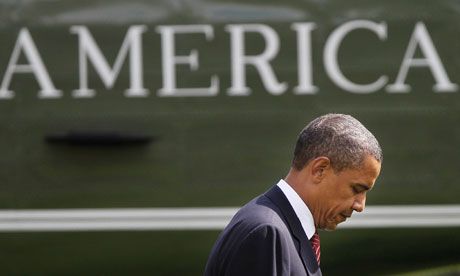THE GUARDIAN: American employers shed 131,000 jobs in July / Data sparks rally in government bonds but stock indices fall

Employers in the US shed twice as many jobs as expected in July, fanning fears that the recovery in the world's largest economy will not see a revival in employment.
The US government said 131,000 jobs were lost overall, compared with forecasts for a 65,000 fall. The drop was mainly due to work finishing for temporary staff hired by the government to conduct its census. But private hiring was also weaker than expected.
Economists polled by Reuters ahead of the non-farm payrolls data forecast that private sector jobs would rise by 90,000, but in the event only 71,000 were added.
At the same time, June's overall drop was revised to a far steeper 221,000 from 125,000.
The data sparked a rally in government bonds, seen as safer investments when the economic picture darkens. Crude oil futures dropped on the prospect of weaker demand from the US market and stock indices also fell, including the FTSE 100 in the UK.
"This employment report only reinforces a sluggish recovery. Private sector job and income gains are not weak enough to point to a renewed downturn, nor are they strong enough to suggest the recovery is free of such risk," said Stephen Gallagher, economist at Société Générale.
Within July's drop, 143,000 jobs were census staff who were laid off, but there were also a further 59,000 public sector job losses as the US government mirrored its counterparts around the world in tightening budgets. Economists voiced concerns that the private sector outlook was also gloomy, suggesting that Americans will remain wary about their job prospects and do little to power the recovery.
"This is not good news for consumer confidence or spending and will intensify concerns about the pace of the recovery at the Federal Reserve," said James Knightley economist at ING Financial Markets. >>> Katie Allen | Friday, August 06, 2010